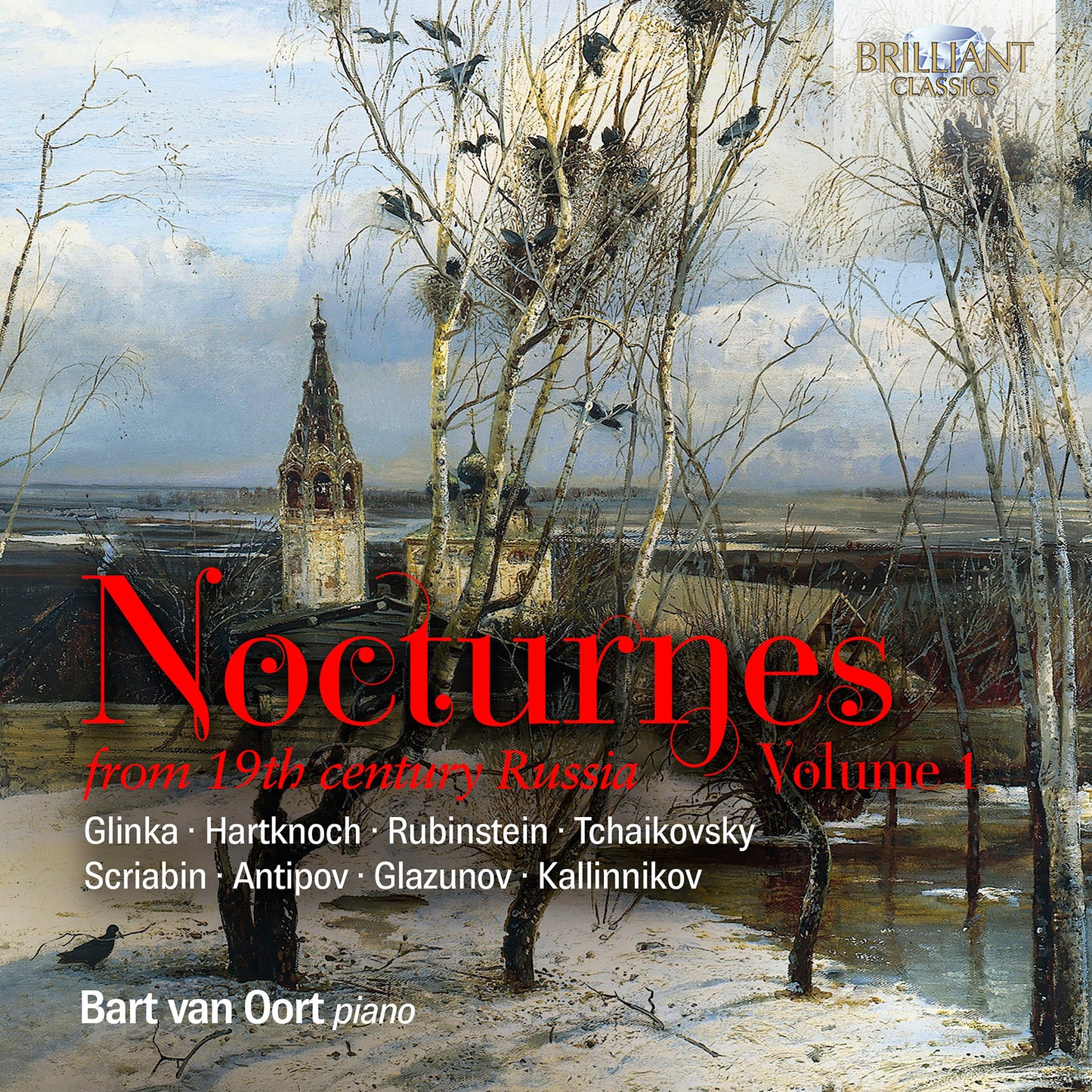Nocturnes from 19th Century Russia, Vol. 1
Nocturnes from 19th Century Russia, Vol. 1
Couldn't load pickup availability
This recording, along with the forthcoming Vol.2, represents a first, comprehensive anthology of the Russian nocturne in its nearly two-hundred-year development. Some nocturnes are recorded here for the first time. The earliest Russian nocturnes were composed by Mikhail Glinka (1804–1857) and owe a debt to his teacher, the Irish composer John Field. The first, in E flat, was written in 1828 before his first trip to Italy. His Nocturne in F minor ‘La Séparation’, written at the height of his career, is styled like a ‘romance’ (song) without words. Karl Eduard Hartknoch (1796–1834) made his debut in 1816 as a concert pianist in Leipzig. In 1824 he moved to Russia, first to St. Petersburg and then to Moscow where he worked as a music teacher. He left a considerable number of piano compositions, including two concertos and the three Nocturnes Op.8. Anton Rubinstein (1829–1894) was a key figure in the history of Russian music, the first of the nation’s composers whose works for solo piano embodied the same serious artistic ideas as his symphonies and chamber music. He wrote eleven Nocturnes, two of them for piano four hands. The two Nocturnes by Piotr Ilyich Tchaikovsky (1840–1893) were written in the 1870s and are regarded as real jewels of Russian music. Tchaikovsky was interested in the subtle movements of the human soul, and like his symphonic and operatic works, his nocturnes abound with the heartfelt poetry of everyday life. Alexander Scriabin (1872–1915) was famous during his lifetime as a piano virtuoso, known for performing his own music. Scriabin wrote the majority of his works for the piano, and the two Nocturnes Op.5 reveal the influence of Frederic Chopin (his model during his early years). While not the first, the Nocturne for the Left Hand in D Flat is perhaps the greatest 19th-century masterpiece written for the left hand. Konstantin Antipov (1859–1927) was a member of the Belyaev Group. He graduated from Rimsky-Korsakov’s composition class at the St Petersburg Conservatory in 1886. Antipov is the author of a symphonic allegro, piano pieces (including two nocturnes), romances and other works. Alexander Glazunov (1865–1936) was an outstanding composer, conductor, educator, and social activist. He worked at the St Petersburg Conservatory for almost 30 years, directing it for more than 20. His style is characterized by attention to texture, harmonic sumptuousness and clarity of melodic lines. Vasily Kalinnikov (1866–1900) lived a short but eventful and creative life. His most significant output was orchestral: symphonies, intermezzos and incidental music for Tolstoy’s Tsar Boris. He wrote just seven works for the piano in the 1890s. His impressionistic Nocturne in F-sharp minor resembles lyrical miniatures in the spirit of Tchaikovsky.
Share


Product Description:
-
Release Date: November 17, 2023
-
UPC: 5028421969664
-
Catalog Number: BRI96966
-
Label: Brilliant Classics
-
Number of Discs: 1
-
Composer: Konstantin Antipov, Alexander Glazunov, Michael Glinka, Karl Eduard Hartknoch, Vasily Kalinnikov, Anton Rubinstein, Alexander Scriabin, Pyotr Ilyich Tchaikovsky
-
Performer: Bart van Oort


